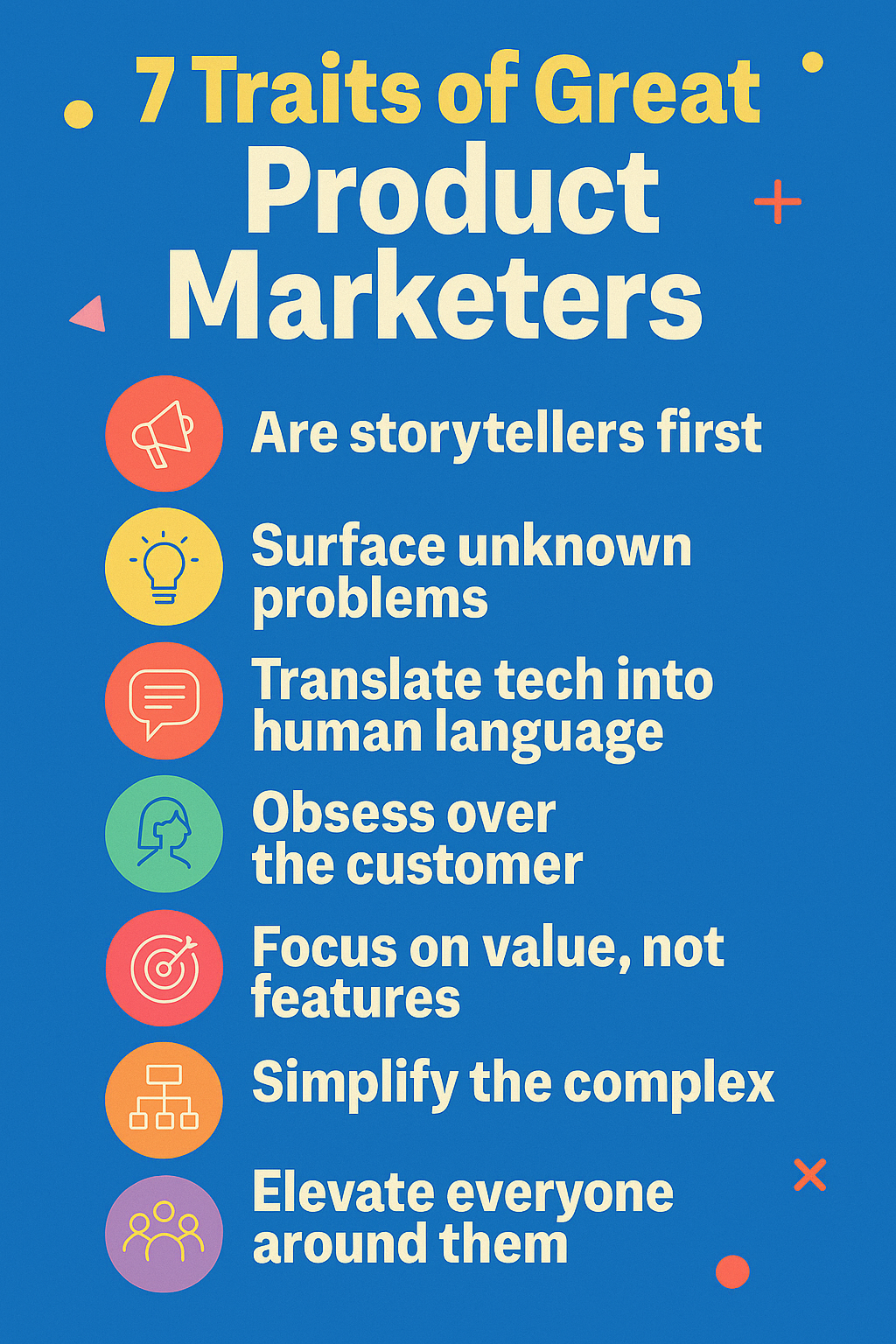In a world of flashy ad campaigns, viral content, and performance dashboards, one marketing role remains quietly complex and critically misunderstood:
Product marketing.
It’s not just a support function. It’s not just launch checklists or positioning decks. Done right, product marketing is the glue that holds go-to-market strategy together.
And yet—it’s arguably the most undervalued role in modern B2B teams.
From messaging to enablement, customer insights to competitive intelligence, product marketers sit at the messy, high-stakes intersection of product, sales, and customer success. They don’t just help people understand what a product does. They help people care—and that’s a far harder job than most realize.
In this article, we’ll explore why product marketing is so difficult to master, what makes the top 1% exceptional, and why this role is more important than ever in 2025.

The Invisible Weight Carried by Product Marketing
For those unfamiliar, product marketing is responsible for how a product is positioned, communicated, and ultimately adopted in-market. That includes:
- Crafting product messaging and positioning
- Understanding the competitive landscape
- Launching new features and products
- Enabling sales and customer success teams
- Partnering with product on roadmap strategy
- Driving customer engagement and retention
It sounds straightforward—until you realize these responsibilities require deep collaboration across every department, while maintaining total fluency in both the customer’s needs and the product’s capabilities.
And that’s where the challenge begins.
Product marketers must:
- Know the product as well as the product team
- Know the customer as well as the research team
- Know the messaging as well as brand marketers
- Know the sales pitch as well as the account executives
It’s one of the only roles in the company where breadth and depth are both non-negotiable.
Why Product Marketing Is Harder Than Ever in 2025
Today’s tech landscape is more crowded than ever.
- New products are launching every week
- Buyers are more skeptical and distracted
- Sales cycles are getting longer
- Differentiation is increasingly difficult
In this environment, average marketing won’t cut it.
Your target customers are being bombarded with features, benefits, and buzzwords. They’re tired of it. And unless your product marketing cuts through the noise with real insight, relevance, and value, your brand fades into the background.
The best product marketers don’t just describe what a product does.
They tell a story that reframes how a buyer thinks.
They change the problem—not just the solution.
That’s why, in 2025, product marketing is not just a function—it’s a strategic lever.
What Sets Great Product Marketers Apart
Looking back over two decades of marketing experience, it’s clear that the best product marketers I’ve worked with weren’t just “good writers” or “good presenters.”
They had a rare combination of traits that made them irreplaceable.
1. They Are Storytellers First
Exceptional product marketers are master narrators.
They know how to take a technical product and build a compelling, emotional, human story around it.
They know how to:
- Tap into deep customer pain
- Create urgency around a hidden problem
- Position their product as the natural solution
When a great product marketer tells the story, people don’t just listen—they believe.
2. They Surface Unknown Problems
Great product marketers have a gift for helping customers care about things they hadn’t even realized were problems.
They understand the difference between:
- “Here’s what our tool does”
- vs. “Here’s the risk you’re living with that we help you eliminate”
That subtle shift changes buyer perception entirely.
3. They Translate Tech Into Human Language
In SaaS and tech, most product documentation is built for engineers.
Customers, however, aren’t engineers.
Elite product marketers know how to:
- Simplify technical language without dumbing it down
- Retain credibility while speaking clearly
- Make features feel accessible and useful
This ability is what turns early adopters into mainstream users.
4. They Obsess Over the Customer
The best product marketers don’t guess what customers care about. They know.
They dive into:
- Win/loss interviews
- Product usage data
- Sales call recordings
- Support ticket patterns
They know the objections before sales hears them.
They know the pain before the product team addresses it.
This kind of insight makes positioning dramatically more powerful.
5. They Focus on Value, Not Features
Every B2B product has features. The real differentiator is value.
Great product marketers fight the constant urge to talk about:
- Dashboards
- Buttons
- Integrations
Instead, they show:
- Time saved
- Errors prevented
- Revenue unlocked
They always ask, “So what?”—until the answer is something a buyer would fight to achieve.
6. They Simplify the Complex
One of the greatest skills in product marketing is distillation.
In a world where attention spans are shrinking and tech is getting more complex, the product marketer who can make it simple wins.
They know:
- Less is more
- Friction kills understanding
- Clarity is a competitive advantage
7. They Elevate Everyone Around Them
Great product marketers don’t just drive launches—they make the entire go-to-market team smarter.
They create tools that make sales close faster.
They build narratives that give customer success new ways to engage.
They bring insights that influence product roadmaps and C-suite decisions.
They don’t operate in a corner.
They become the connective tissue between teams and outcomes.
Why Product Marketing Deserves More Investment
Despite all this, many companies still underinvest in product marketing.
- They staff it with one overwhelmed person
- They bring them in too late in the go-to-market planning
- They don’t give them enough influence over messaging or roadmap
- They confuse it with product management or brand marketing
If you want to grow sustainably in a crowded market, this is the mistake to fix.
Product marketing is not overhead.
It’s not a cost center.
It’s one of the few levers that affects both acquisition and retention.
More importantly, it’s often the only team that understands both the problem you solve and the people you serve.
Final Thoughts: Product Marketing Is the Role to Watch
Every time I meet a truly exceptional product marketer, I walk away smarter.
They don’t just ship messaging—they reshape markets.
In 2025 and beyond, the companies that win will be those who invest in product marketing as a core strategic function.
Not just someone to “handle the launch.”
Not just someone to “write the positioning.”
But someone who shapes category narrative, drives alignment, and influences what gets built—before it ever gets marketed.
If you’re hiring, promote your product marketers.
If you’re scaling, staff that team early.
And if you’re in product marketing? Keep going. You’re doing some of the hardest—and most essential—work in B2B.

Hi there! I’m Scott, and I am the principal consultant and thought leader behind Stratus Analytics. I have a Master of Science degree in marketing analytics, and I’ve have been providing freelance digital marketing services for over 20 years. Additionally, I have written several books on marketing which you can find here on Amazon or this website.
DISCLAIMER: Due to my work in the packaging industry, I cannot take on freelance clients within the packaging manufacturing space. I do not want to provide disservice to your vision or my employer. Thank you for understanding.
